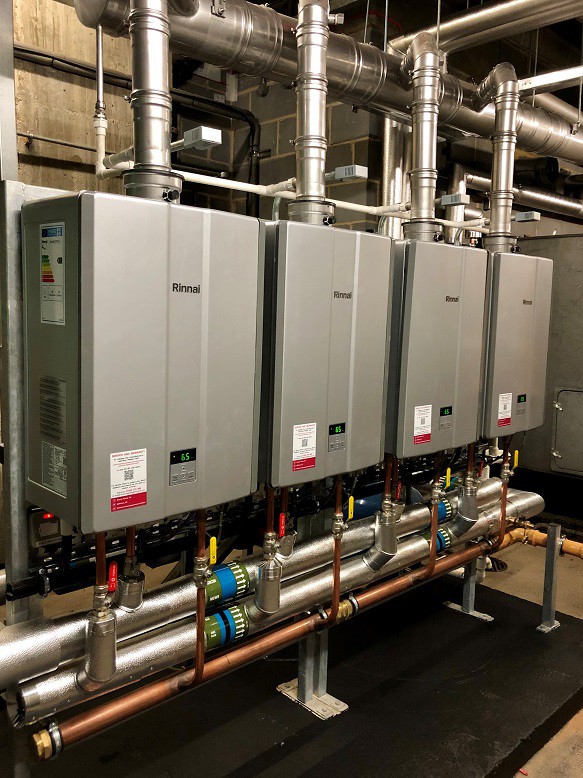Decarbonise right now with Rinnai N Series and BioLPG

Temperature controlled and limitless volumes of continuous flow hot water heating systems and units now available
Now available from Rinnai is decarbonised hot water heating, courtesy of the company’s Sensei N Series powered by BioLPG.
When combined, the Rinnai Sensei N Series, a new generation hot water heating system and BioLPG, an eco-friendly fuel source that reduces harmful emissions, can contribute directly towards global decarbonisation. In an earlier report conducted by Rinnai possible savings of 81% on carbon emissions in off-grid sites converting to BioLPG as its main fuel source have been documented and verified.
Each unit of energy produced for consumption is responsible for releasing a measurement of harmful carbon dioxide. Coal releases 100 units of carbon dioxide per unit of energy yielded; petrol and diesel produces 70 units - natural gases 50 units. BioLPG releases no harmful emissions at all.
BioLPG is conceptually renewable and sustainable, as it is made from a blend of waste, residues and sustainably sourced materials. BioLPG, can be described as an eco-propane, the chemical makeup of this gas is identical to LPG and is therefore compatible with existing in situ LPG products from a combustion perspective.
BioLPG is a co-product of the biodiesel production process. In the manufacturing process, feedstocks undergo a series of complex treatments. They are combined with hydrogen in a process called hydrogenolysis which separates and purifies their energy content.
During the refining procedure, a variety of waste gases are produced that contain BioLPG. For every tonne of biodiesel, around 50 kg of BioLPG is produced from this gas stream. This co-product is then purified to make it identical to conventional propane.
The new Rinnai Sensei N Series water heater range is BioLPG accessible and offers new compact and enhanced combustion design that allows for easier installation, superior operational performance and ease of serviceability.
The Rinnai Sensei N Series is the first ever continuous flow hot water heating unit manufactured with stainless steel heat exchangers to be available in the UK - this gives a greatly extended working life at optimum performance to each of the four models in the range. Added to this is the Sensei N Series market leading extended warranties.
The four models are: the N1600i giving 954 litres per hour; the N1600e (external) also giving 954 litres per hour (at 50 degrees); the N1300i giving 775 litres per hour and the N1300e also giving 775 litres per hours of temperature controlled at 50 degrees. The two 1600s have load profiles of XXL and are water efficiency class A.
Other features include:
- · Flue up to 30+ metres for concentric
- · Turbo Fan
- · Built-in controller as standard on both internal and external models
- · Cascade Cable assembly allows up to 24 water heaters to be connected and function as one total and complete system Any number of N-series Rinnai water heaters can be manifolded together enabling the largest capacities on the market.
- · Built in flue damper
- · Air inlet filter
- · Frost Protection – minus 15°C on the internal versions and minus 20°C on the external versions
- · New PCB Design
- · Controller as standard – Lockable, set up of appliance, Temperature set up to 75°C
- · Maintenance Monitor for engineers
As the units do not incorporate storage their ‘green credentials’ are further recognised by BREEAM and score additional credits under the building regulations.







